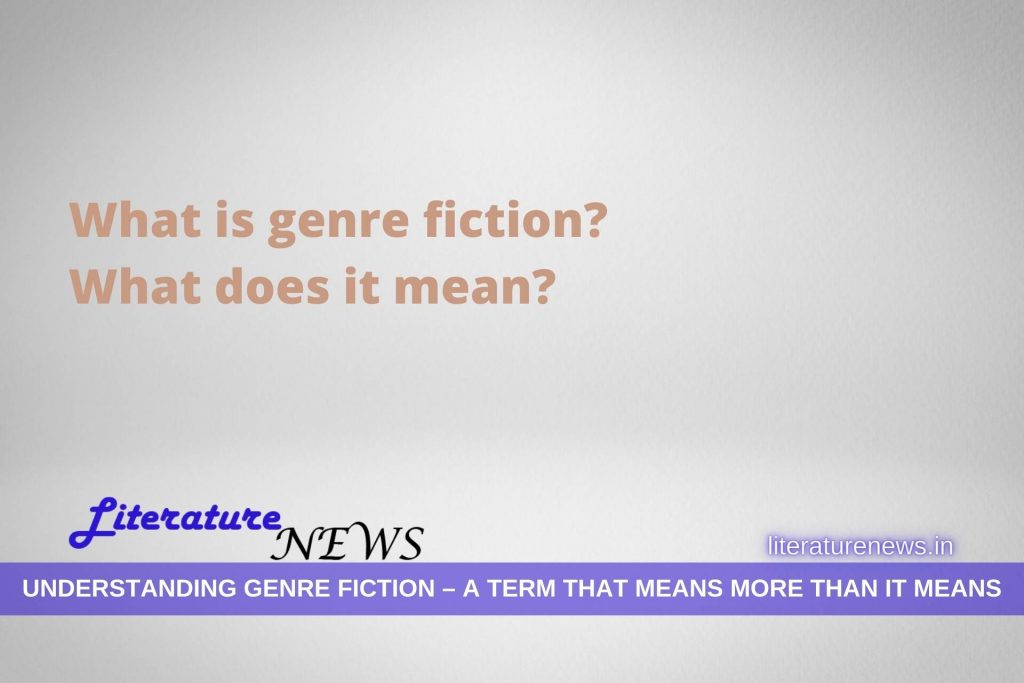You must have heard about genres in literature. Horror, psychology, philosophy, romance, religious, Poetry, satire, and so on. However, a new term is in the buzz among scholars and intellectuals these days – genre fiction. What is Genre fiction? What does it signify? Who should know it? Is it important to know this term? In this article, I will try to explain this term in the light of its important connotation in contemporary literature.
Genre Fiction is a combination of words ascribed to the literary works designed to fit themselves in certain genres. The authors intend to put elements in their works in such an order that the literary works automatically resemble the qualities of a particular genre. For example, the works by Amish Tripathi or Ashwin Sanghi are deliberately designed to become mythological fiction. Chetan Bhagat’s works are consciously morphed into the soft-porn category even after having serious elements of contemporary fiction. This is what genre fiction, as a combination of words or a phrase, means. A fictional work intended to resemble a certain genre.
Genre fiction has gained popularity because it is destined to become popular. Authors react to readers’ demands and then genre fiction is born. And therefore, with market research, readers’ trends, popular books from the past, patterns of publications and many other inputs available to the authors, it becomes easy for anyone with considerable capital, a powerful PR mechanism and good writing skills to dominate the market of books and produce bestselling literature. Chetan Bhagat and Amish Tripathi, Kumar Vishwas, J K Rowling, Ashwin Sanghi, Dan Brown, Paul Coelho, and many others in the same league are the best examples of successful experiments in genre fiction.
It is important to note that Genre Fiction never fails. People will always read genre fiction. While the appeal of classic or literary fiction can fade away with time, Genre fiction remains contemporary and popular all the way. You can see people reading Austen today and not tomorrow. Even Dickens was the hot topic of his time and faded into oblivion with literary enthusiasts standing by his side. However, Dracula is still read, and Frankenstein will always be read. That is why no author is attempting to write literary fiction or rather more traditional novels today. Every author wants to remain contemporary and reach as many readers as possible. It is not viable while writing traditional fiction. Amitav Ghosh is an Indian example (though he is American) of what traditional fiction cannot give to you.
At the same time, we should not forget that the award jury and literary festival committees are always, or most of the time, fascinated by the literary authors and their works. Nobel Prize for literature or the Man Booker, or any other big or small-time literary award often goes to someone you may never have heard of – that is the power of traditional or literary fiction. This is something that genre fiction writers cannot ‘buy’ or fix. However, there is another lobby at work for such awards and at times, you might notice mediocre writers being lionised with such awards to propagate some particular agenda to a further level.
So, to conclude this piece, I will put a few more words. Genre fiction is a popular fiction category that sells more compared to traditional fiction. Myth, horror, adult, sensual romance, science fiction, gothic, apocalyptic or dystopian, neo-historic, and psychological fiction are some of the leading genre fiction categories. Social, personal, slow-moving, serious and dramatic novels are some examples of traditional or literary fiction. Moreover, in traditional fiction, you will also notice standard language, well-developed characters and sometimes annoyingly high attitude of the author.
Written by V Jha for Literature News
